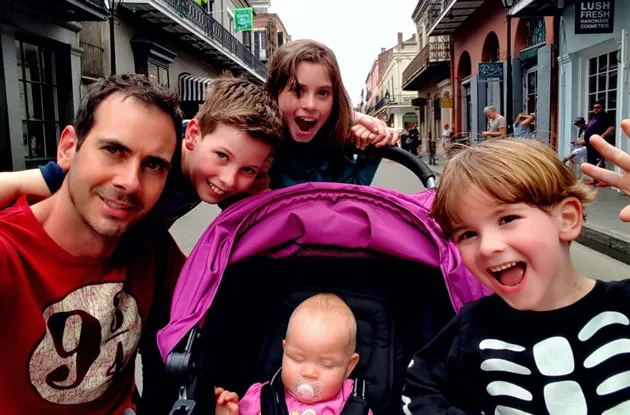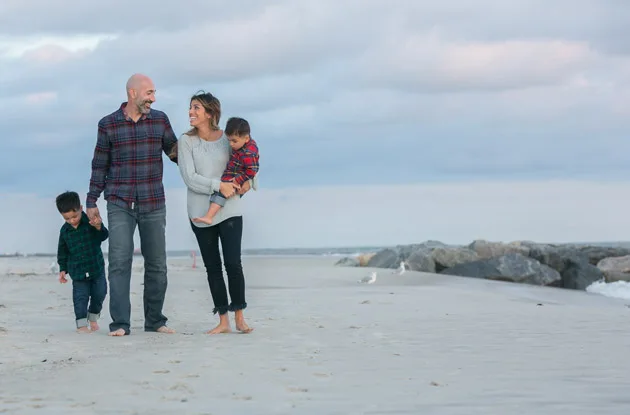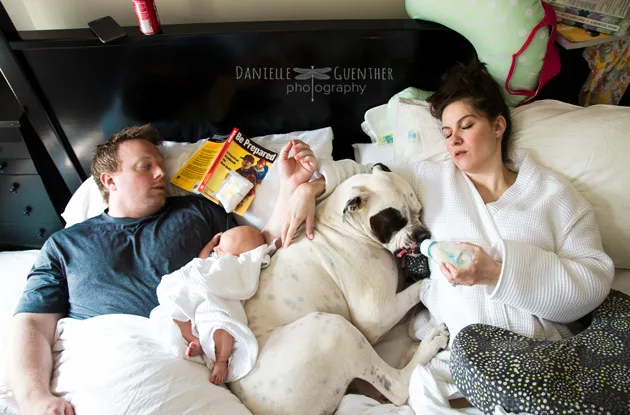A mom raising a child with special needs with her family in New York City is empowered in her own situation as she helps other families through trying and challenging times with their own children with special needs.
Like so many people I know, I was dragged kicking and screaming into special needs parenthood. I was not actually planning to experience this much uncertainty, pain, rage, and even shame; on some level, I was embarrassed to be singled out, to be in the position of having to ask for help for my child.
I remember the day the initial Early Intervention reports arrived in the mail. After reading them, I sat motionless on the couch for hours, feeling as if I’d been hit by an asteroid. I wanted to move 3,000 miles away to someplace where no one knew me, where I wouldn’t be “that mom” with “that kid.” I wanted to disappear.
This is not an experience the average person seeks out. And it’s transformative, whether or not you actually wanted to be transformed. Like it or not, you are on your way to becoming an entirely new person.
Discovering the Stages of Parenting a Child with Special Needs
Seasoned SN parents will tell you that you don’t turn into this new person overnight. It took a lot of years, and tears, to adjust to my new identity. Along the way,
I learned things I never expected, or even wanted, to know about things like social skills, motor planning, sensory integration, pragmatic language, and special education. It was something like being born all over again, and something like moving through the five famous Kübler-Ross stages of grief: Denial, Anger, Bargaining, Depression, and Acceptance.
An SN parent who has gone through these stages may still find herself looping through two or three or all of them again, sometimes multiple times. You can be going along fine, and then something will hit you out of nowhere: a birthday, the first day of school, a carefully planned vacation that didn’t go at all as you hoped, the moment when an infant sibling easily picks up a skill the older child still struggles to learn. Any of those can set you back and mess with your head, and cause you to detour through some or all of DABDA all over again.
But there is a point at which you realize you have come further than you realized. It’s a sixth stage of the process, one that doesn’t get talked about as much. You may not be conscious of your progress towards it, but once you reach it, you have gained a stronger foothold in your new reality, and things begin to hurt much less. I would call this stage H, for Helping: when you use your experience to offer support to fellow parents.
Making Progress as a Parent of a Child with Special Needs
You may not even realize that you have come to this place. You may find out by accident, the day you get into an exchange with a new parent in a therapy waiting room, a support group, an Internet forum. It’s as if you woke up one day fluent in a foreign language you had no idea you were studying. Perhaps to your own surprise, you have become a source of empathetic, practical advice about therapists, doctors, schools, diets, and suggestions for the checkout-line meltdown (plus snappy lines to say to the people staring). And it feels great to help! You feel a little weight lifted at the thought of helping someone who reminds you of yourself not too long ago.
When I came to the point where I was able to offer support and advice to other parents, it was a revelation to me. I felt like yelling: Take THAT, special needs! I talked to someone without crying—in fact, I even smiled! Maybe I really helped that person, maybe I suggested that someday things will be better. And that is the moment when I realized that things actually were better. Very different from what I ever expected, but so much better than they had been. It was so empowering to see that my rotten experience could help me do something good for someone still in those early, awful days.
This rush of feeling can be addictive. I actually did get addicted to it, and eventually I changed careers to help other parents for a living, so now I get to feel it all the time. I see myself in each new person I talk to, and every conversation helps me put even more distance between me and the wreck I used to be. I can’t go back in time and reassure my raw, terrified earlier self that better days lie ahead, but I can reassure others. Helping others has been enormously healing.
Medical students in their experiential training learn the phrase “See one, do one, teach one.” Going from asking advice to giving advice is a kind of graduation, one that allows you to take stock and see how far you have come. Using your experience to help someone else is utterly redemptive—an act of pure good, defiance in the face of fate. Every time I help another parent, I am really helping myself, and it allows me to take another step in my own progress towards peace.





















